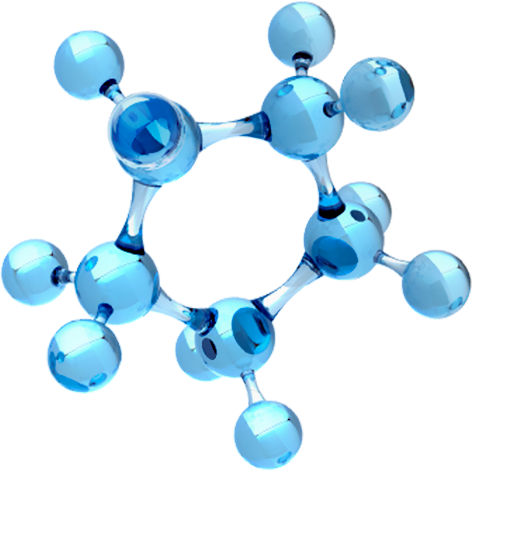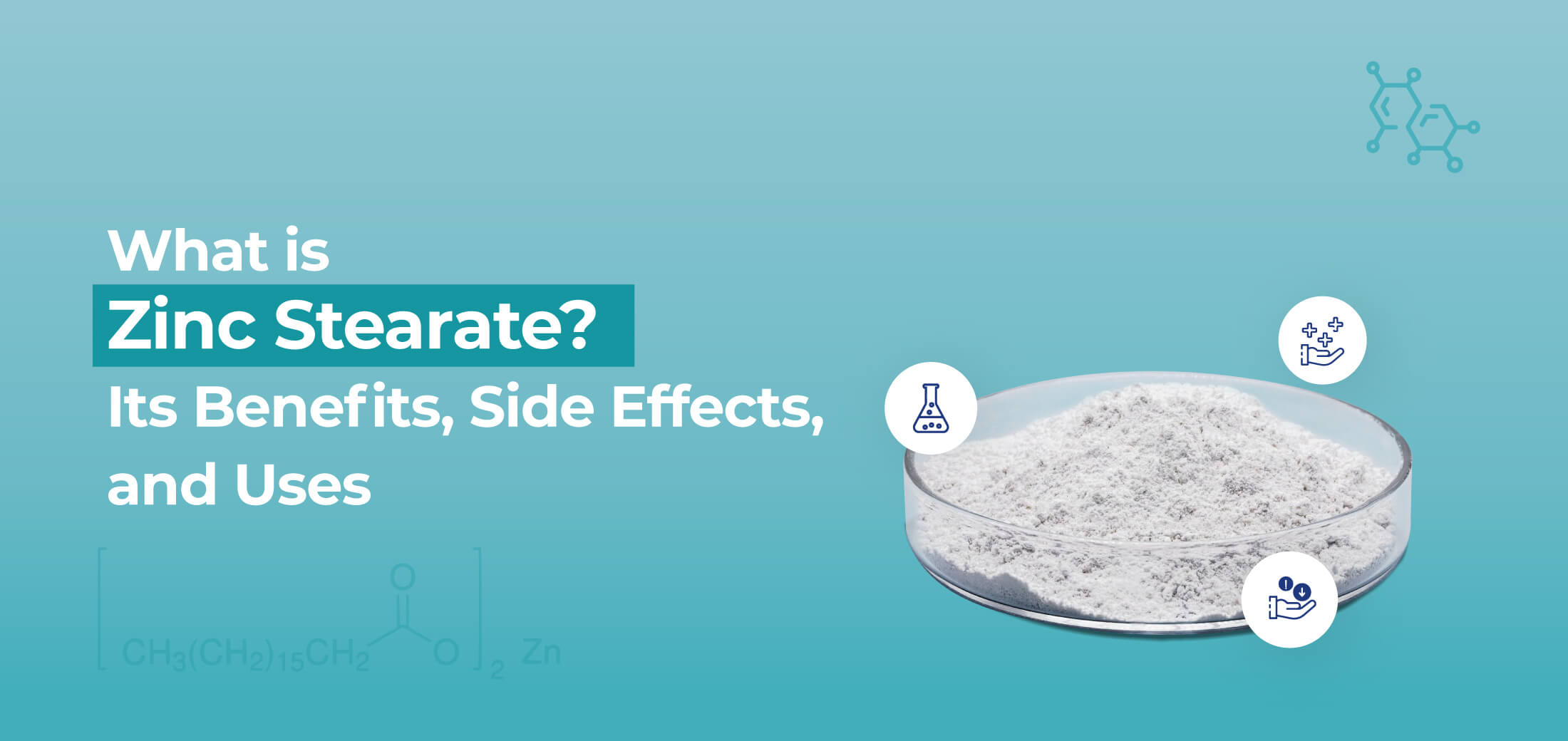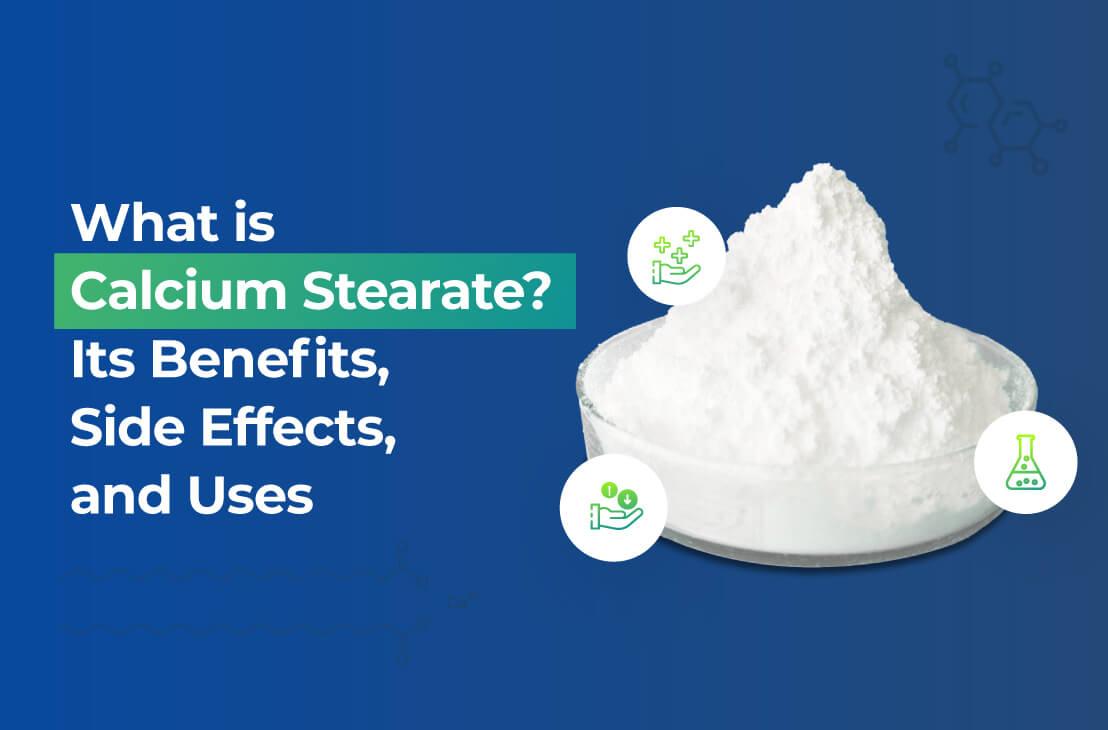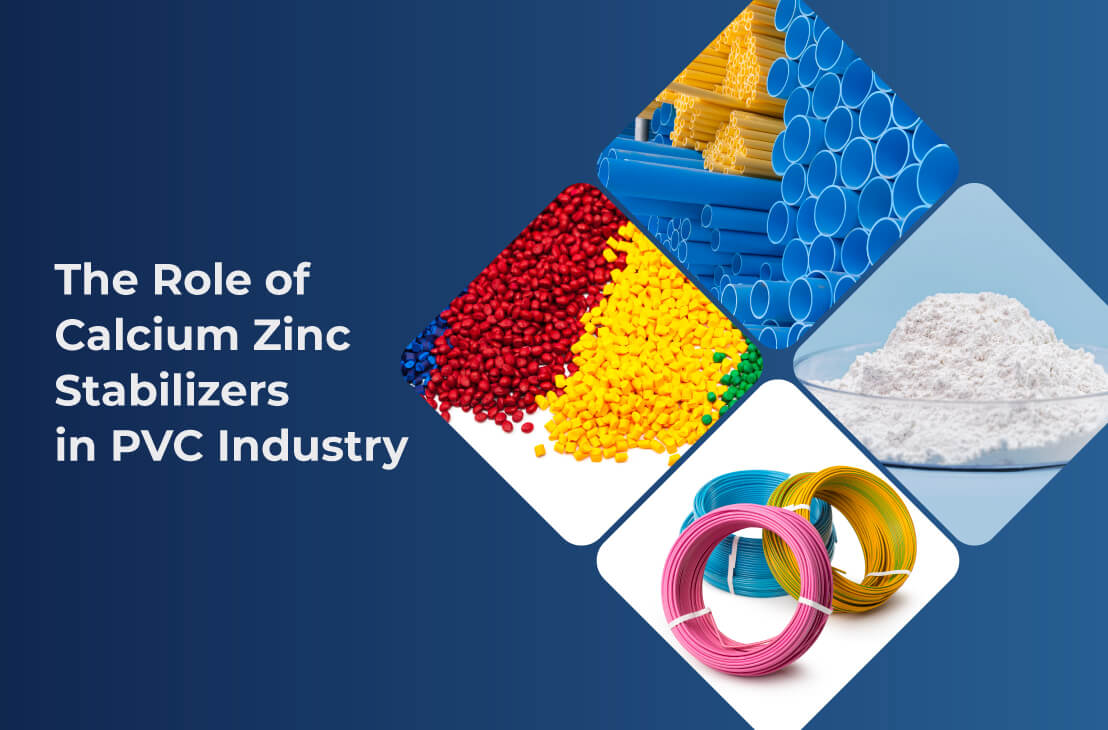Zinc stearate is a significant and often utilised material in various industrial contexts. Stearic acid and zinc salts are combined to generate it. Because of its unique properties, this white, finely powdered material is a necessary processing and manufacturing tool. In this study, we debunk the myths around zinc stearate by giving information on its background, benefits, potential downsides, and the many applications that have made it essential in a range of industries, including rubber, plastics, medicines, and cosmetics.
Carefully mixed stearic acid and zinc ions yield zinc stearate, a soft, granular substance that is hydrophobic and lipophilic. It is a favoured choice in industries where mould release agents are required to ensure smooth operations in the rubber and plastic production process because of its lubricating qualities. During the polymerization of polymers like PVC, zinc stearate acts as a lubricant and stabilising agent to stop particle fusion and agglomeration. This quality enhances the material and is necessary for a lot of industrial operations.
Even though zinc stearate has many advantages, it's important to be aware of any potential drawbacks. Prolonged dust exposure from zinc stearate may irritate the respiratory system, hence certain safety measures are needed. Zinc stearate can still significantly benefit a number of sectors when used properly and effectively. For instance, it serves as an anti-caking agent in the food industry and as a fire retardant in the plastics and coatings sector. As we learn more about zinc stearate, the significance of this material to the intricate network of contemporary industrial use and the vast array of industries it affects become increasingly clear.
The Benefits Of Zinc Stearate
-
Lubricating Qualities
The remarkable lubricating qualities of zinc stearate are one of its main advantages. This makes it the best option for usage as a mould release agent in sectors such as the rubber and plastic manufacturing industries. The lubricating property ensures smooth results by preventing materials from sticking to moulds during processing.
-
Zinc Stabilized PVC
The most well-known method produces polyvinyl chloride (PVC) and other polymers by stabilising zinc stearate. By controlling the fusion and agglomeration of particles during the production process, it improves the quality of the final product.
-
Hydrophobic Zinc
Zinc stearate rejects water because it is hydrophobic. This feature makes it useful in situations where resistance to moisture is essential. This property is used in the production of paints, varnishes, and cosmetics.
-
Caking Prevention
Zinc stearate is used in the food industry as an anti-caking agent. It helps maintain a homogeneous texture by preventing powdered materials from clumping or creating lumps.
The ability of zinc stearate to withstand fire is one of its best-known characteristics. It is used to increase some polymers' and coatings' resistance to flames.
Possibly Hazardous Reactions
Although zinc stearate is widely regarded as safe for usage in numerous industries, there are a few things to think about in terms of possible negative effects:
- Lung irritation may result from breathing in dust tainted with zinc stearate over an extended period of time. It is essential to implement the necessary safety precautions, such as wearing personal protective equipment, to lessen this danger.
- Irritation of Skin and Eyes: Skin and eye irritation may result from direct contact with zinc stearate. Protective gear, such as gloves and safety glasses, should be worn when handling the substance.
The Uses of Zinc Stearate
-
Rubber and Plastic Industries
When making rubber and plastic goods, zinc stearate is commonly utilised as a releasing agent. Its lubricating qualities make the moulding and demolding procedures easier.
-
Paints and Coatings
Zinc stearate is a preferred ingredient in paint and coating formulae due to its water-repellent properties, which boost durability and moisture resistance.
-
Pharmaceuticals
Zinc stearate is utilised as a lubricant in the pharmaceutical sector to guarantee the seamless compression of powders into tablets.
-
Cosmetics
Zinc stearate is widely used as a component in cosmetic products like face powders and eyeshadows because of its ability to offer a smooth application and lessen clumping.
To sum up
Because of its diverse applications, zinc stearate is a valuable component in many sectors and helps produce a wide range of items. In spite of all of its advantages, it needs to be used cautiously and in accordance with safety precautions to reduce any possible risks. Zinc stearate will surely continue to be an essential part of the goods and materials we use on a daily basis if trade and technology develop further.









